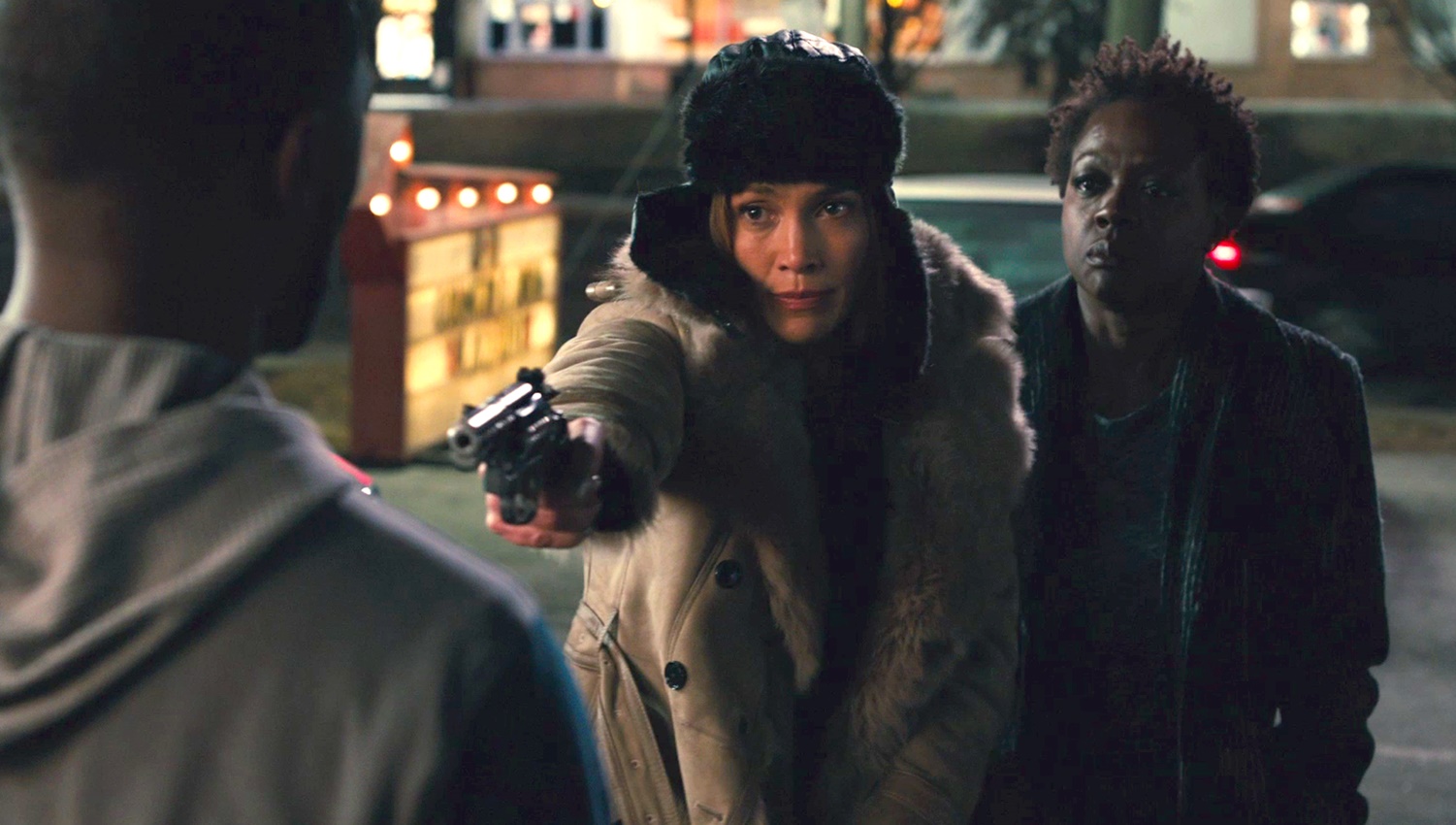On the one hand, it’s fantastic that a film exists with Academy Award nominee Viola Davis (The Help) and Jennifer Lopez (The Boy Next Door) in duel leading roles. It’s also great to see a film breaking racial stereotypes and confronting issues like female empowerment, vigilante justice, forgiveness and judgement all from the female perspective. What isn’t so great about Lila & Eve is it’s disassociation with reality. If you have seen Jodie Foster in The Brave One, you have an idea for the tone and theme of Lila & Eve. There is a psychological element in this film that works more as a gimmick than it does as an extra layer of drama or suspense, the savvy viewer should be able to spot this obvious secret pretty early on.
Following the death of her teenage son, Lila Walcott (Davis) attends Mothers of Angels meetings at the local church for women who are struggling to deal with the death of their children. She is encouraged to get a sponsor and asks Eve (Lopez), who initially explains it would be a bad idea, after finally relenting. The two are inseparable as Lila becomes increasingly frustrated with the lack of progress from the police investigation. “Just one name” they tell her, in order to pursue her son’s murder. Eve encourages Lila to seek her own justice, and the two women follow leads until they get in over their head. Worried about the safety of her younger son, Lila is faced with fleeing town or seeing her new found taste of justice to the end of the line.
There is a psychological element in this film that works more as a gimmick than it does as an extra layer of drama or suspense.
Davis is the glue that holds this Lifetime movie together. Her performance puts a mother’s grief on full display while Lopez’s back seat performance is as curious as it is questionable. Director Charles Stone III (Drumline, Paid in Full) lacks the ability to use the psychology that’s flirted with in the script to make this anything other than a revenge film. Opening with the death of the son, we only get a brief glimpse of Lila without grief in flashbacks. She spends so much time focused on revenge we never see her at work and finally even her neglected son brings attention to her absence.
Nearly every character but Lila is written as one sided, only on screen to move our protagonist from one scene to the other. There is also never a female character on screen who isn’t a mother, yet the film certainly passes The Bechdel Test with every passing scene. It also proves that just having female characters on screen, discussing subjects other than love and men, do not automatically make it a well-rounded film for women. Viola Davis is an extraordinary actor and her commanding performance here once again demonstrates her strength, but this screenplay is far below her capabilities.
Final Thought
Without Davis’ performance this is the Lifetime movie of the week.

